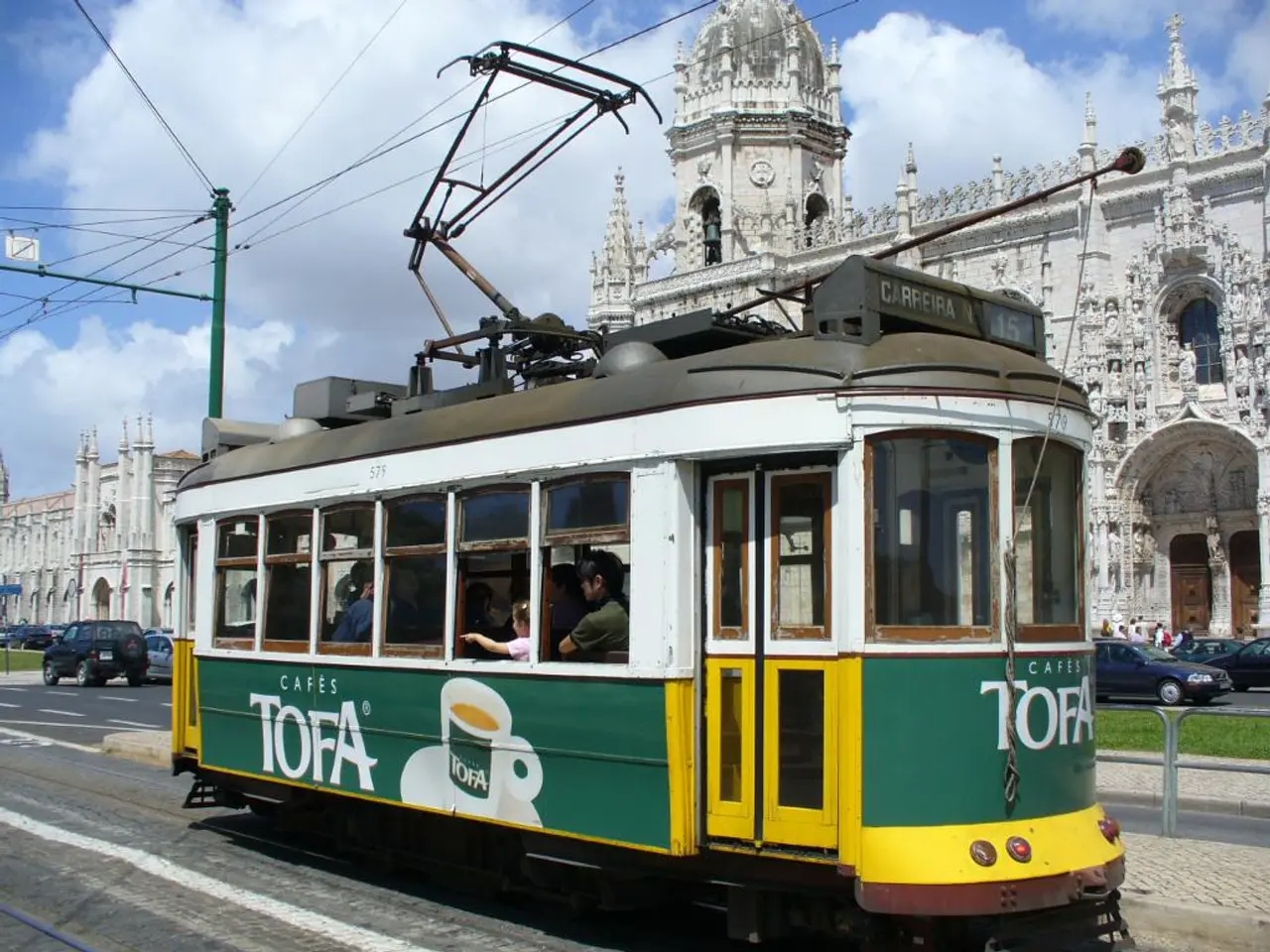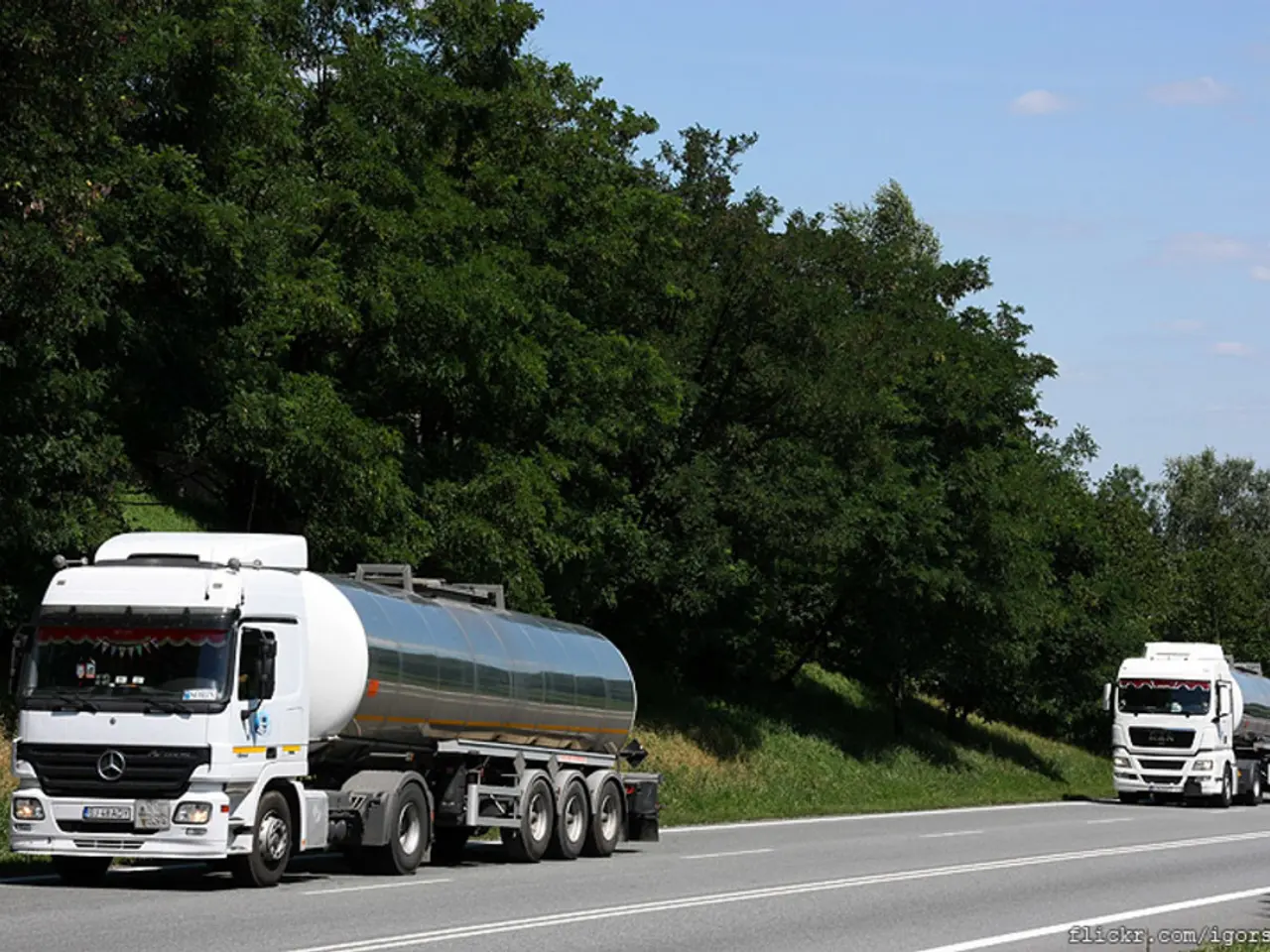Unlimited labor action announced publicly.
In a series of planned strikes set to commence in the coming days, the union ver.di is asserting its demands for higher wages and improved working conditions in public transport companies across Germany. The strikes, which have been met with overwhelming support from the workforce, are aimed at addressing long-standing issues of pay stagnation and real wage losses.
The recent collective bargaining negotiations between the Association of Municipal Employers and ver.di have failed in the third round, with the union's demands going unmet. These demands include a shift and alternating shift bonus for driving services, relief days for all employees, and an identical location for the start and end of work.
Ver.di is also seeking a 100% annual special payment, a bonus for foremen, group leaders, and team leaders according to individual level, and overtime from the first minute and at the individual level without deduction. The union aims to make working conditions more attractive and improve employees' ability to handle the current critical situation and master the transport transition with more staff.
The strikes, such as those at Berlin's BVG local transit company, have been driven by the union's dissatisfaction with negotiated outcomes that were seen as insufficient by many workers. In a recent vote, 94.5% of workers supported the strikes, but agreements reached with mediation ended up below original demands and did not fully compensate for real wage losses over recent years.
Similarly, strikes at the Port of Hamburg and Bremerhaven are centered on demands for significant hourly wage increases, including a demand for a three-euro hourly raise retroactive from June 2024. These strikes have been called because employer offers during negotiations have been unacceptable and far from meeting worker demands.
The impact of these strikes on passengers is significant. Public transport services like buses, trams, and local transit in cities such as Berlin can face severe disruptions or complete stoppages during strike periods. In major ports like Hamburg and Bremerhaven, strikes cause work stoppages affecting logistics and cargo handling, which can indirectly affect supply chains. Passengers and commuters may face delays, cancellations, or reduced service availability.
Despite the disruptions, ver.di remains open to talks during the strike. The union's industry expert for buses and trains, Peter Büddicker, explained that the strike is a response to the employers' behavior. The decision to strike was made following an overwhelming vote by the workforce.
Approximately 30,000 people are employed in local public transport, and the strikes have the potential to impact a significant number of passengers and freight services in Germany. Passengers are advised to adjust their travel plans accordingly, as strikes are often announced in advance.
- In the midst of ongoing strikes, ver.di is pushing for changes in the finance sector, advocating for a 100% annual special payment for public-transit employees to improve their working conditions and better manage the transport transition.
- The finance industry will be affected by these strikes, as demands for overtime pay from the first minute and at the individual level without deduction among foremen, group leaders, and team leaders could pose challenges to business operations in public transportation.
- Beyond the transport sector, strikes in public-transit companies like Berlin's BVG and major ports like Hamburg and Bremerhaven could impact the broader economy, as service disruptions might cause delays, cancellations, or reduced service availability for businesses that rely on transportation and logistics.







